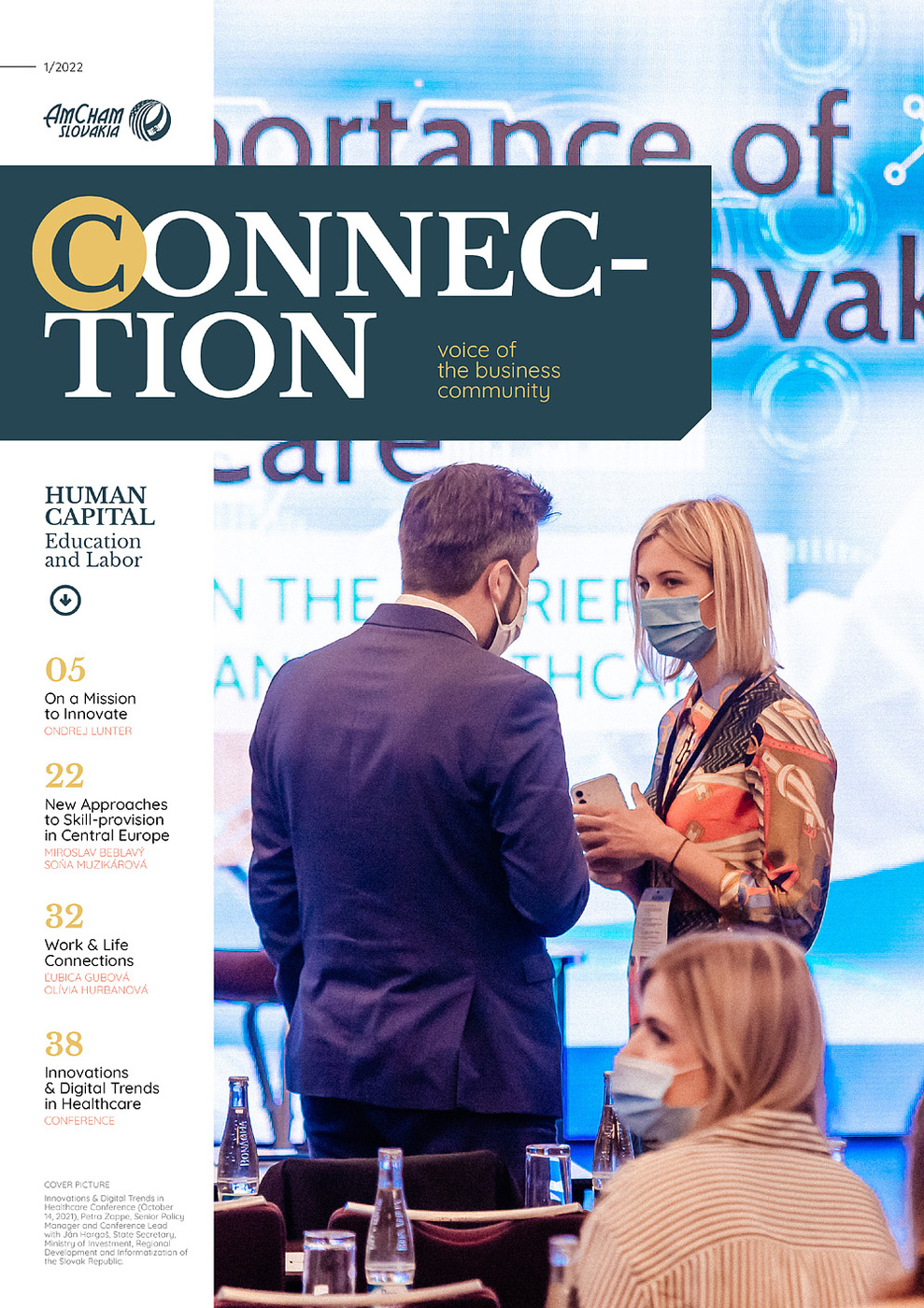Impact of a crisis is never gender-neutral and COVID-19 is no exception
Globally we have made progress over the last three decades on several important aspects of gender equality, such as maternal mortality, access to education, women´s participation in management positions and political representation. Nevertheless, the level of women´s participation in the labor market is still significantly lower compared to men. At the same time, achieved progress on gender equality varies across the countries.
Slovakia has not entered the pandemic in the best condition when it comes to the position of women in society. According to The Gender Equality Index which measures the progress of gender equality in the EU, Slovakia ranks 24th in the EU and scores 12 points below the EU average. In spite of several improvements in the domains knowledge (educational participation and gender segregation), money (economic situation and financial resources), there is a significant room for improvement.
From existing problems to the She-cession
Every crisis aggravates the differences and problems that already exist in a society. The COVID-19 pandemic emphasizes deeper structural factors such as gender composition of sectoral employment, lack of flexibility in the labor market and poor access to affordable childcare alternatives. “A significant number of women are working in the sectors most affected by the COVID-19 pandemic or are excessively influenced by the public health measures. Simultaneously, they are facing a higher burden of unpaid care as its demand has increased during the pandemic,” explains Eva Sadovská, analyst at the WOOD & Company. Surveys show that the number of hours required for household care increased by an average of 2,5 hours a day during the pandemic.
 “Generally speaking, women in Slovakia earn about one fifth less than men. The biggest differences in salaries are in the age category of 35 - 49 years (approximately 25 %) and are related to maternity and parental leave. Pay inequalities between women and men are also striking in segments like technology services, communications, financial and insurance services (approximately 33 %). At the same time, women are less likely to hold better paid leadership positions and are often overrepresented in low-paying jobs,“ clarifies Sadovská.
“Generally speaking, women in Slovakia earn about one fifth less than men. The biggest differences in salaries are in the age category of 35 - 49 years (approximately 25 %) and are related to maternity and parental leave. Pay inequalities between women and men are also striking in segments like technology services, communications, financial and insurance services (approximately 33 %). At the same time, women are less likely to hold better paid leadership positions and are often overrepresented in low-paying jobs,“ clarifies Sadovská.
Another factor to consider is the disproportionate impact of COVID-19 on entrepreneurship of women. As a result of the current crisis, family resources are reduced and available financial capital for investing into the business is limited. According to the survey conducted by Top centrum podnikateliek for almost 66% of women entrepreneurs, the pandemic resulted in a suspension or slowdown of their business activity. This outcome was kind of expected as a typical women-owned business has a turnover of up to 50K eur, belongs to services, retail or hospitality, and the majority of Slovak business women are mid-age women with families.
Setting a new course
Every crisis is also an opportunity to do things better. Well-designed and timely implemented policies can mitigate the negative effects of the crisis on women, economies and societies.
There is no doubt that support of the government and other policy makers is inevitable in this case - income support for vulnerable people, investing in child care facilities and social care infrastructure, family leave available for equitable use by men and women, support for SMEs and the self-employed are just a few points policymakers should consider to reduce the gaps and provide good baseline for inclusive society.
And although this support from public authorities might positively shape economy, there are several possibilities companies can consider independently in order to decrease the negative impact of the pandemic. Leading multinational companies are already starting to incorporate flexible work hours as job requirements allow, offer hybrid model of work and part-time jobs, support employees during maternity and parental leave. They design programs focused on onboarding teams to the new world of work that requires digital skills and new competencies necessary to adapt to permanent shifts in the labor market caused by the pandemic.
A number of companies have already started this process of focusing on employees´ well-being, but the pandemic forced many to make it a business imperative. In order to minimize the negative impact it is important to transfer this best practice to other local businesses across Slovakia.
Public opinion in line with business priorities
Some shifts in society are so significant that all stakeholders are unified in desired outcomes. In November 2021, InsightLab conducted a public opinion poll about the role of companies in eliminating the impact of the pandemic on the workforce. According to the survey, 63 % of respondents expect companies to proactively address the issues women face at the workplace, 52 % expect employers to support and facilitate the return of women to work from maternity leave, strictly eliminate all forms of discrimination against women in the labor market and to offer more part-time jobs. More than one third of respondents are in favor of a hybrid work model in the years to come.
Preventing women from losing their jobs or having difficulties to return to work is an investment into the future. We already know and data confirms that what is good for the equal status of women in the labor market is good for the economy and society as a whole. As we move forward and create new post-pandemic models of work and policies, businesses need to step up to support their employees and their families to create a better employee experience.
Katarína Podracká, Managing Partner, getCLIENTS
Lenka Iľanovská, Managing Partner, getCLIENTS




Follow us